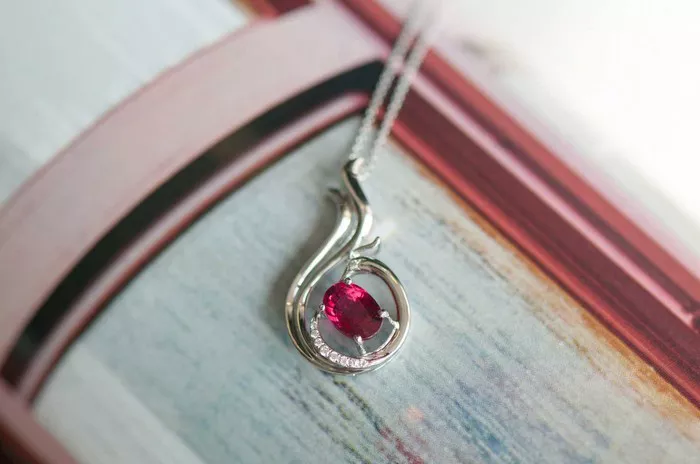Tourmaline is a popular gemstone known for its wide range of colors and unique properties. When considering how much to pay for tourmaline, it is essential to understand the various factors that influence its price. These factors include quality, color, size, origin, and market trends. By examining these elements, one can make an informed decision about the value of tourmaline and what to expect in terms of cost.
Understanding Tourmaline Quality
Color
Tourmaline comes in a variety of colors, including green, blue, pink, red, and multicolored. The most valuable colors are often those that are rare and highly saturated. For example, Paraíba tourmaline, which is known for its vivid blue and green hues, can command high prices due to its scarcity and intense coloration. The presence of certain elements, such as copper, can enhance the color and increase the value of the gemstone.
Clarity
Clarity refers to the presence of inclusions or blemishes within the gemstone. Tourmaline can have natural inclusions, which are often visible to the naked eye. The fewer inclusions a tourmaline has, the higher its clarity grade and, consequently, its value. However, some inclusions can be characteristic of the gemstone and may not significantly affect its overall beauty or value.
Cut
The cut of a tourmaline can greatly influence its appearance and value. A well – cut tourmaline will enhance its color and brilliance, making it more desirable. The cut should be proportionate and symmetrical to maximize the gemstone’s optical properties. Different cuts, such as oval, round, or emerald – cut, can also affect the price, with more complex cuts often being more expensive.
Size and Weight
Carat Weight
The size of a tourmaline, measured in carats, is a significant factor in determining its price. Larger tourmalines are generally more valuable, as they are rarer and can be used in more elaborate jewelry designs. However, the price per carat may not increase linearly with size. For example, a 5 – carat tourmaline may be significantly more expensive than a 1 – carat tourmaline, but a 10 – carat tourmaline may not be ten times the price of a 1 – carat tourmaline.
Shape and Proportions
The shape of the tourmaline can also affect its price. Certain shapes, such as round or oval, are more popular and may command higher prices. Additionally, the proportions of the gemstone, such as its length – to – width ratio, can influence its overall appearance and value. A well – proportioned tourmaline will be more visually appealing and, therefore, more valuable.
Origin and Rarity
Geographic Origin
The origin of a tourmaline can significantly impact its price. Tourmalines from certain regions are known for their high quality and unique characteristics. For example, Paraíba tourmaline from Brazil is highly sought after due to its vivid colors and is often more expensive than tourmalines from other regions. The rarity of the gemstone in a particular location can also drive up its price.
Mining and Production
The availability of tourmaline in the market can affect its price. If a particular mine produces a large quantity of high – quality tourmalines, the price may be more stable. However, if a mine is depleted or production is limited, the price may increase due to scarcity. Additionally, the cost of mining and production can influence the final price of the gemstone.
Market Trends and Demand
Popularity and Fashion Trends
The popularity of tourmaline in the jewelry market can have a significant impact on its price. If a particular color or type of tourmaline is in high demand, the price may increase. Fashion trends can also influence the desirability of certain tourmalines. For example, if pink tourmaline is currently in vogue, the price of pink tourmalines may be higher.
Economic Factors
Economic conditions can also affect the price of tourmaline. During periods of economic growth, consumers may be more willing to spend on luxury items, including gemstones. Conversely, during economic downturns, the demand for tourmaline may decrease, leading to lower prices. Additionally, currency exchange rates can influence the price of tourmaline in different markets.
Pricing Examples and Case Studies
Paraíba Tourmaline
Paraíba tourmaline from Brazil is one of the most expensive types of tourmaline. Due to its vivid blue and green colors, which are caused by the presence of copper, Paraíba tourmalines can command prices of several thousand dollars per carat. The rarity of these gemstones, combined with their intense coloration, makes them highly desirable among collectors and jewelry enthusiasts.
Green Tourmaline
Green tourmaline, especially in shades similar to emerald, can also be quite valuable. The price of green tourmaline can range from a few hundred to several thousand dollars per carat, depending on its quality and size. High – quality green tourmalines are often used in fine jewelry and can be a more affordable alternative to emeralds.
Pink Tourmaline
Pink tourmaline, particularly in pastel shades, is popular in the jewelry market. The price of pink tourmaline can vary widely, from a few dollars per carat for lower – quality stones to several hundred dollars per carat for high – quality specimens. The demand for pink tourmaline can be influenced by fashion trends and consumer preferences.
Conclusion
In conclusion, the price of tourmaline can vary greatly depending on its quality, color, size, origin, and market trends. When considering how much to pay for tourmaline, it is important to evaluate these factors carefully. By understanding the characteristics that contribute to the value of tourmaline, one can make an informed decision about its worth and what to expect in terms of cost. Whether you are a collector, a jeweler, or a consumer, being aware of these factors will help you navigate the market and find the perfect tourmaline at the right price.
Related topic:
- Is Green Tourmaline Valuable?
- Can Taurus Wear Green Tourmaline?
- Which Hand to Wear Green Tourmaline?


